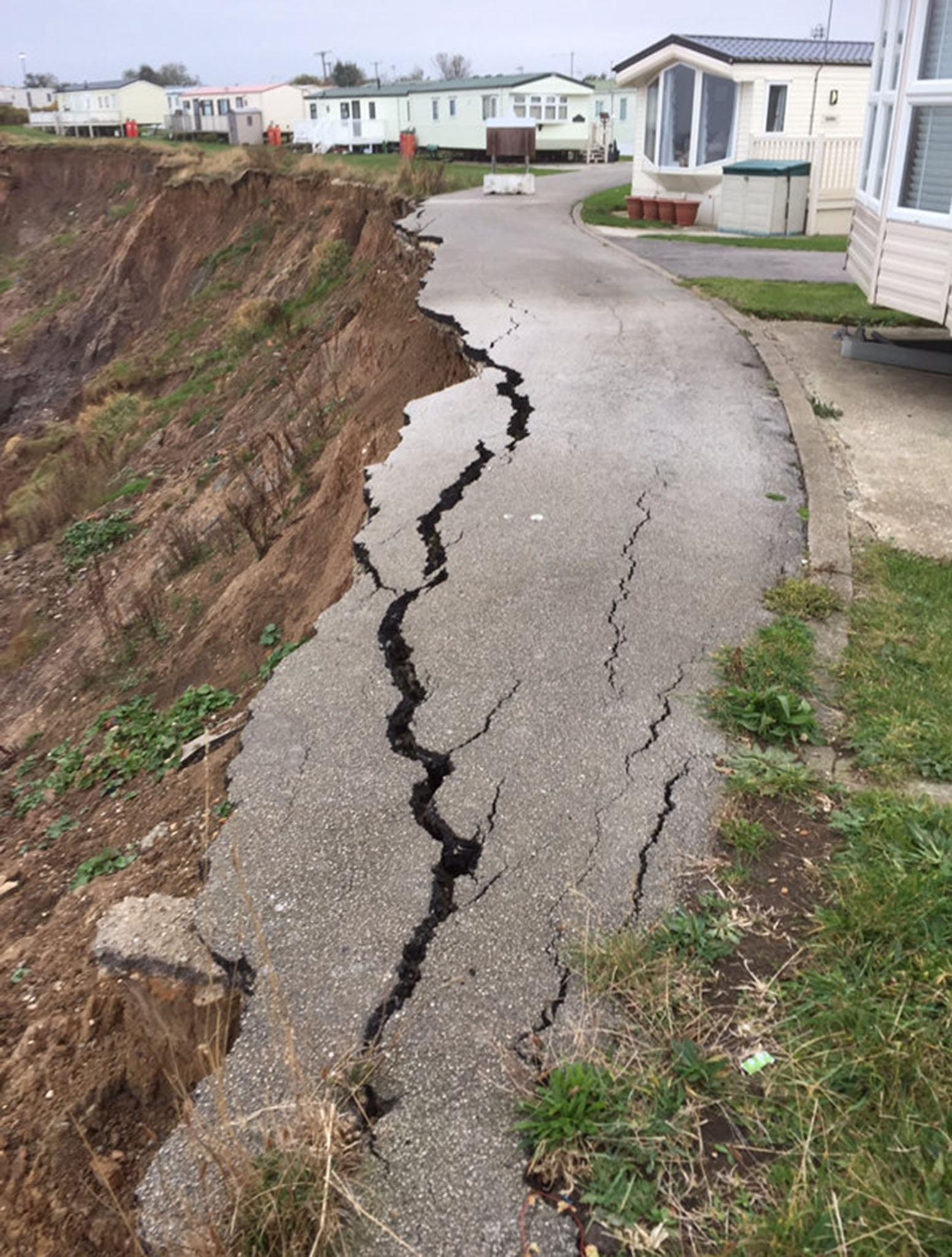Photos reveal how coastal erosion dramatically eats away at Britain’s shoreline
‘They are losing areas that they didn’t expect to lose. They didn’t think it would be that quick’
Your support helps us to tell the story
From reproductive rights to climate change to Big Tech, The Independent is on the ground when the story is developing. Whether it's investigating the financials of Elon Musk's pro-Trump PAC or producing our latest documentary, 'The A Word', which shines a light on the American women fighting for reproductive rights, we know how important it is to parse out the facts from the messaging.
At such a critical moment in US history, we need reporters on the ground. Your donation allows us to keep sending journalists to speak to both sides of the story.
The Independent is trusted by Americans across the entire political spectrum. And unlike many other quality news outlets, we choose not to lock Americans out of our reporting and analysis with paywalls. We believe quality journalism should be available to everyone, paid for by those who can afford it.
Your support makes all the difference.New aerial photographs have revealed how Britain’s coastline is quickly and dramatically receding.
Swathes of land on East Anglian shoreline have vanished over two decades, crumbling into the sea.
The photos, taken by retired mechanic Mike Page, highlight big differences between 1999 and now, after cliffs have been eroded.
Many experts blame Britain’s accelerating coastal erosion on climate change, as storms, rising temperatures and melting polar ice all make sea levels rise.
The Committee on Climate Change warned in October that rising sea levels will claim homes, roads and fields around the coast.
Sea levels could rise by up to a metre by the end of the century, the committee said.
Last year five properties in the seaside village of Hemsby, Norfolk, were demolished because of severe coastal erosion, and many are still at risk after strong winds and high tides claimed six metres of cliff in two days.
In 2013 three houses in Hemsby fell into the sea and others were badly damaged by storms.
But no area of the British coast is immune. Earlier this month a huge crack opened in a cliff on the coast at Hornsea, Yorkshire, just metres from holiday homes.
Mr Page, 79, has been flying over the Norfolk and Suffolk coasts in a two-seater Cessna light aircraft regularly over 30 years, taking photos and monitoring the erosion.
He says in some cases the cliffs have eroded by more than half a mile.
“It’s an ongoing issue and we will see a lot more of this,” he said.
“I’ve been looking at the erosion for some time now so I knew it would look something like this but it is quite unbelievable – it’s a lot and it’s getting worse. There is going to be more land lost.

“They are losing areas that they didn’t expect to lose. They didn’t think it would be that quick.
“They have lost about 35 houses at Happisburgh and about 20 houses at Hemsby.”
The climate change committee warned that building defences was unaffordable for a third of the country’s coast. Instead, discussions about “hard choices” needed must be started with communities that will have to move inland, it said.
Mr Page, who has taken 150,000 images in his 50 years of flying, said: “It is a serious issue and landowners are spending their own money protecting their land.
“The government will not spend the money on it. People are having to spend money on dismantling their own houses.”
The East Anglian coast is being allowed to erode under a government policy called “managed realignment”, allowing the shoreline to move naturally.
Join our commenting forum
Join thought-provoking conversations, follow other Independent readers and see their replies
Comments